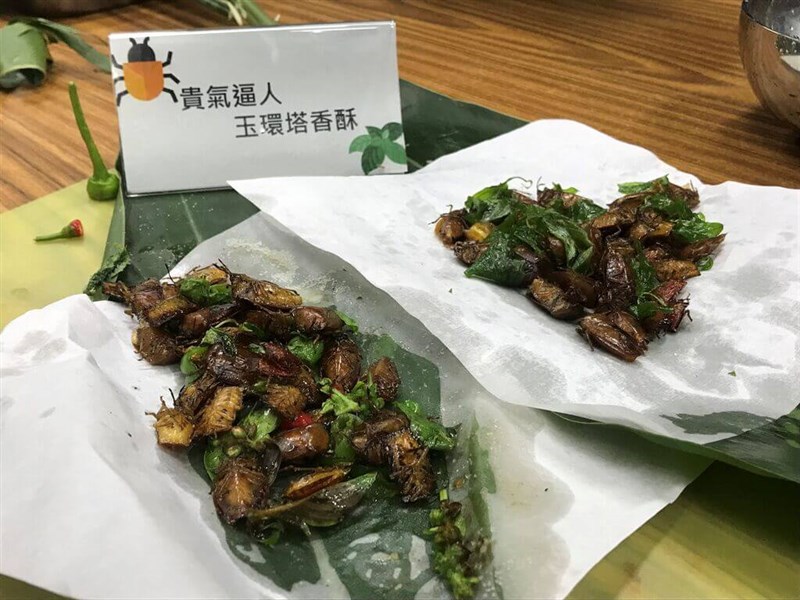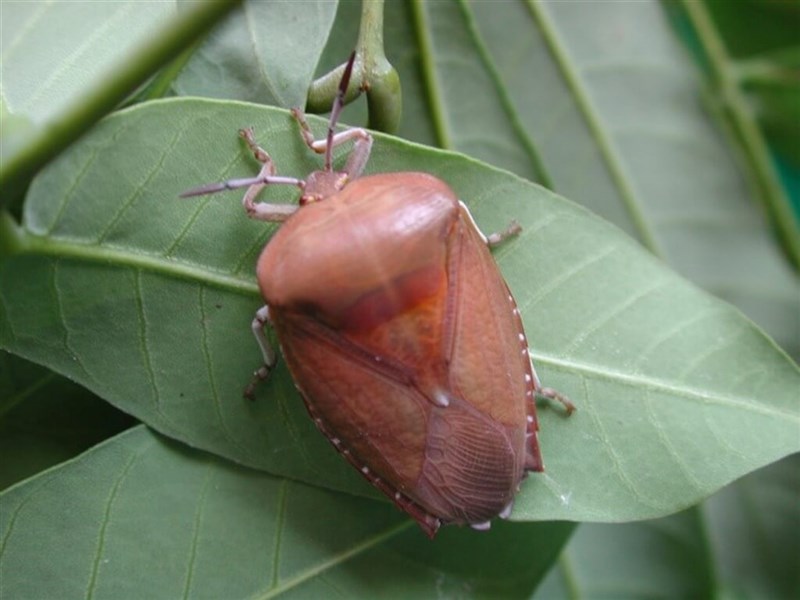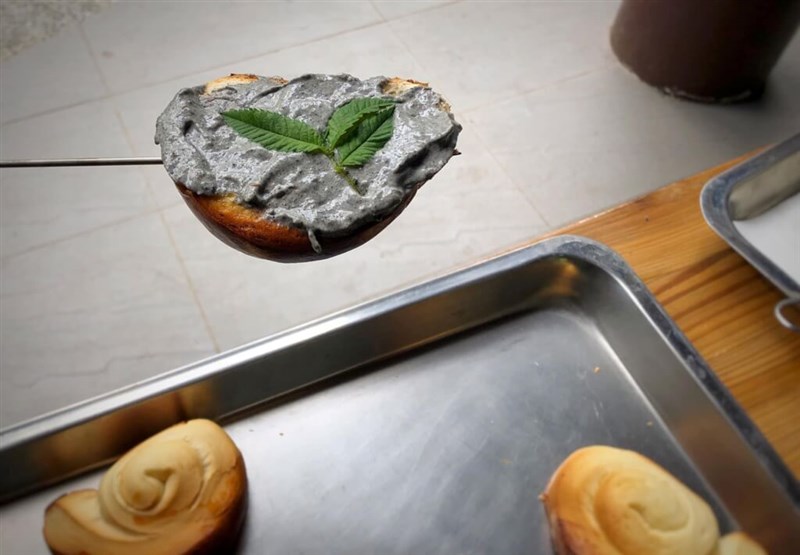Gov't tries new tack on lychee stink bug control: Telling people to eat them

Chiayi, April 9 (CNA) After years of trying to control invasive lychee giant stink bugs with spraying and bounties, the Forestry and Natural Conservation Agency on Tuesday encouraged the public to join its efforts by learning how to cook and eat them.
The insects, which were first spotted on Taiwan's main island in 2009, are now commonly found during the summer on trees in the soapberry family, including longans, lychees, flamegold rain trees and wingleaf soapberries.
When disturbed, the bugs release a corrosive, stinky liquid in self-defense, which can burn through leaves and fruit and has in recent years become a growing problem for Taiwan's longan and lychee farmers.

To control them, local governments have tried, with varying levels of success, using drones to spray orchards with saponins -- bitter, plant-derived organic chemicals -- and offering bounties for their eggs.
However, since lychee stink bugs are edible and a good source of protein, members of the public can also help "eradicate [the bugs] by eating them," Lee Ting-chung (李定忠), deputy head of the agency's Chiayi branch office, told CNA on Tuesday.
To help promote the bugs as a food source, Lee said his office will hold classes at Chiayi's Chukou Nature Center on April 27 and May 11.
Attendees will learn not only how to identify and remove lychee stink bugs, but also how to cook them -- and several other common insects -- using a handful of easy recipes, he explained.
Although eating insects is not common in Taiwan, it is part of the food cultures of hundreds of millions of people around the world, Lee said.

Lychee giant stink bugs, in particular, are eaten across parts of Southeast Asia and China, he added.
More information on the classes and how to register is available on the Chukou Nature Center's Facebook page.
- Society
Thousands of Muslims gather across Taiwan for Eid al-Fitr prayers
04/10/2024 05:13 PM - Politics
New Cabinet to respond to domestic, global challenges: Lai
04/10/2024 04:55 PM - Society
Electronic pet ID card launched by agriculture ministry
04/10/2024 04:51 PM - Business
U.S. dollar closes lower on Taipei forex market
04/10/2024 04:11 PM - Business
TSMC reports highest sales for Q1
04/10/2024 03:52 PM